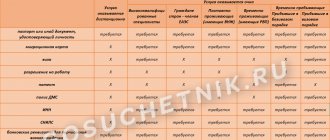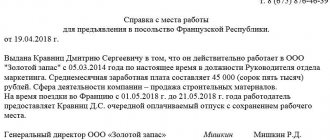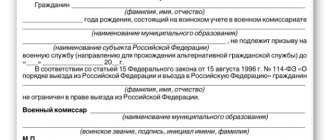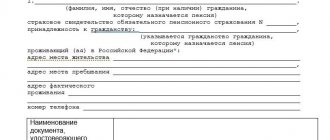Employment contract between an individual and a foreigner under a patent
Officially, Russian employers have the right to employ citizens of other countries only those who are legally registered with the Federal Migration Service and have the appropriate permit to carry out labor activities in the Russian Federation.
Every personnel officer and employee of an enterprise is required to have at hand a sample employment contract with a foreign citizen so that non-residents of the country can be processed as quickly and accurately as possible. If a citizen is already 18 years old, then an employment contract is concluded with him, and if he is not, then for the purposes of official employment of minors, a civil contract with a foreigner is provided. But such agreements are also concluded for other reasons, and not only with those who have not yet reached their full adult years.
An employment contract between an individual and a foreign citizen is drawn up according to special rules. Any citizen who has reached the age of 18 and earns money independently can act as an individual employer. Individuals can use the labor of foreigners only for personal purposes, in the private sector.
An individual employer must pay all applicable taxes. And after signing the employment contract, within three days, notify the migration services about hiring a foreign citizen.
The list of documents that will be required to sign such a contract is no different from the list for legal entities and individual entrepreneurs. The contract is drawn up in 2 copies. Since most often an individual’s work is temporary, the concluded contract must be signed for a certain period.
Options for employing a foreigner
Since 2021, some rules for the employment of foreign citizens have changed. The changes are as follows:
- The reporting forms for the employment of foreigners, approved by Order of the Ministry of Internal Affairs No. 363 of June 4, 2019, have been changed.
- Requirements for enterprises with tax debts have been tightened. Such enterprises are prohibited from hiring foreigners.
- The procedure for registering persons for migration has been changed. Now the head of the company can hire a foreign specialist, provided that he lives at a facility that is on the balance sheet of the enterprise (Russian Federation Government Regulation No. 246 of 03/07/2019).
Note. Ignoring the new rules for the employment of foreigners may lead to sanctions for enterprises in the form of fines of up to 800,000 rubles. It is also possible to suspend the operation of an enterprise for a period of up to 3 months.
Based on the new conditions, the employer can use the following options for employing foreign persons in 2021:
- Enrolling a foreigner into the staff of an enterprise by concluding a trade agreement with him.
- Registration of a foreign guest as a member of the enterprise staff by concluding a civil law agreement (CLA) with him.
The list of documents, as well as the possibilities of the employer and the applicant for a vacancy when concluding a trade agreement depend on the status of the foreign guest located in the territory of the Russian Federation. Law No. 115-FZ regulates employment options for the following categories of foreign persons:
- Temporarily staying. This category includes foreign persons who are in the Russian Federation without a residence permit (residence permit), but with a migration card.
- Temporary resident. Foreigners have a temporary residence permit (TRP), issued for a period of up to 3 years.
- Permanent resident. These foreigners are holders of a residence permit issued for 5 years, with the possibility of extension. This status is assigned to those citizens who have lived in the Russian Federation for at least one year.
- Depending on the citizenship of the foreign guest, you can enter the Russian Federation with or without a visa. Citizens of the Eurasian Economic Union (EAEU) can take advantage of a simplified procedure for getting a job.
- A separate category includes highly qualified specialists who are subject to special requirements.
Next, we will consider the nuances of employing foreign guests, depending on their belonging to a particular category.
( Video : “Employment contract with a foreign citizen”)
If you have a residence permit or temporary residence permit
A residence permit is a document close to a civil passport of a citizen of the Russian Federation.
However, persons who have received this document are not required to obtain Russian citizenship and have the right to stay in the Russian Federation for an unlimited time, periodically extending the residence permit. Citizens who have a residence permit have the right to find employment legally, without providing additional documents. TD with a foreigner holding a residence permit is issued on the basis of the Labor Code of the Russian Federation and Law No. 115-FZ of July 25, 2020 (as amended on July 20, 2020). The taxation procedure for such persons is carried out in a special regime in accordance with the Tax Code of the Russian Federation.
A residence permit can be issued in the form of a separate document or by affixing a stamp in the passport.
A temporary residence permit is a document that gives a foreigner the following rights:
- Stay in the Russian Federation legally for up to 3 years.
- Submit documents to obtain a residence permit, and, if desired, Russian citizenship.
To employ a person with a temporary residence permit, no additional permitting certificates are required. However, a TD with a foreigner of this category can be concluded within the validity period of the temporary residence permit.
When concluding a contract with a foreigner, the employer is obliged to notify the territorial department of the Ministry of Internal Affairs for migration issues.
Note. If a foreigner is hired, you must first pay attention to the validity period of the temporary residence permit. Usually it is 3 years. When the period expires, you need to remind the specialist about the renewal of the permit.
Differences from labor relations
An employee employment agreement is a document establishing civil law relations between an employer and an employee. It is not regulated by the Labor Code of the Russian Federation, but falls under the Civil Code of the Russian Federation. In this case, both contracting parties have equal rights; in such relations, the performer does not become a subordinate, and the employer does not have the right to apply disciplinary sanctions.
The hired employee is not subject to the internal regulations of the enterprise; labor regulations do not apply to him. The contractor has the right to independently organize the workplace, and in some cases, determine its location. The order execution schedule is agreed upon and may have deviations from the original provisions if the changes do not affect the final result, which is fundamental in this type of relationship.
A civil agreement is concluded only for a limited period or until certain goals are achieved. In this case, the performer receives a reward, not a salary. The payment schedule is agreed upon in the document. As a rule, remuneration is paid upon acceptance of the completed order, but advance payment of labor is also allowed, in accordance with certain stages of performance.
Hiring gives the company the following advantages:
- the procedure for temporary employment of a performer is simplified;
- the remuneration is transferred in its entirety, mainly without paying taxes and insurance premiums;
- vacation, sick leave and other amounts guaranteed by the employment contract are not paid to the hired employee, and his job is not retained.
The hired employee also receives certain benefits:
- the right not to comply with labor regulations adopted at the enterprise;
- hiring without entering information into the work book;
- the ability to involve third parties in order fulfillment.
Minuses
The disadvantages of a civil agreement include the limitation of the employer’s ability to monitor the progress of the order. The company has the right to apply fines if they are provided for in the contract, but these situations require careful investigation, often in court.
When applying to the judicial authorities, the employment contract is sometimes forcibly replaced with an employment contract, so employers try to avoid such cases, because The company is obligated to pay taxes and insurance premiums, as well as provide the employee with all required social guarantees.
For a performer, work for hire may become the basis for prosecution under Article 171 of the Criminal Code of the Russian Federation if he is not registered as an entrepreneur. In addition, if there are no entries in the performer’s work book, the work performed will not be included in the length of service when calculating pension points.
We invite you to familiarize yourself with: Author's contract with the director of the play
An employee cannot foresee the occurrence of temporary disability during the performance of work functions. When agreeing to a temporary relationship, you must remember that the employer will not provide financial support in unforeseen situations.
An employee employment agreement has a number of significant differences from an employment agreement.
| Index | Civil agreement | Employment contract |
| Contracting parties | Both legal entities and individuals | Concluded only with individuals |
| Validity | Limited | Unlimited or renewable |
| An object | Result of work or service | Employee's personal activities |
| Form of payment | Reward | Wage |
| Social guarantees for employees | Not provided unless expressly stated in the contract | Guaranteed by the Labor Code of the Russian Federation |
| Payment of taxes and insurance premiums | No remuneration will be made until transfer | Performed by the employer monthly/quarterly |
| Providing a workplace | Not provided unless specified in the agreement | Provided by employer |
Thus, the employee employment agreement allows the company to recruit performers for certain orders without paying taxes and insurance premiums. The financial benefit for both parties is offset by a reduced level of control over the progress of the project.
A temporary civil contract is partially beneficial not only to the enterprise, but also to the employee. It is important that its form is drawn up legally, and in case of disagreement, the document is not interpreted by the court as a contract falling under the Labor Code of the Russian Federation.
The main document regulating the labor of foreigners on the territory of our country is Federal Law No. 115-FZ dated July 25, 2002 “On the legal status of foreign citizens in the Russian Federation.” It regulates not only issues of employment, but also the stay of foreign citizens on the territory of the Russian Federation.
Before proceeding with the procedure for drawing up an employment contract, it is necessary to check the patent data with personal documents, as well as check its validity period. The specialty indicated in it must correspond to the vacancy.
An employee can only work in the region in which he issued a patent. And in an employment contract with a foreign citizen under a temporary residence permit, the place of work must be indicated. The absence of such details in the contract will be a violation of the law.
Despite the limited validity of a patent, an employment contract with its owner is not allowed to be concluded for a certain period, except for the reasons described in Article 59 of the Labor Code of the Russian Federation (Article 327.1 of the Labor Code of the Russian Federation).
Step 1. Receive the necessary documents from the foreigner:
- identification document (passport, residence permit, temporary residence permit);
- valid registration;
- patent;
- additional medical insurance policy;
- document on education (if necessary);
- SNILS;
- Russian-style work book.
►How to hire a foreign citizen with refugee status...
Step 2. Fill out the employment contract form with a foreign citizen. It is not fundamentally different from the form of an agreement with Russians. Therefore, if your company already has a standard developed employment contract form, it is possible to use it with minor modifications.
Step 3. Indicate the exact place of work of the foreigner. It is also necessary to register the patent data. The employee's full name is written in the contract in strict accordance with those specified in the patent. Writing your full name in English or other languages is not allowed.
Step 4. Enter the new employee’s passport details, information about the patent and place of registration.
Highly qualified specialists always receive high salaries in Russia if they are officially registered. The level of earnings reaches from 84,000 to 165,00 on average, part of these funds goes to pay insurance premiums and personal income tax, just as it happens with the earnings of Russian citizens. In a word, when a foreigner wants to fully conclude an employment contract, then he must understand that he will have to obey all the provisions of Russian labor legislation.
- work permit, if the person received it before January 1, 2015;
- a patent that gives the same permission and right to work in Russia must be issued within 1 month from the date of entry into Russia;
- if you have a TRP (permit for temporary residence on the territory of the Russian Federation) or VND (residence permit), then this is also provided to the employer;
- You should definitely prepare a medical insurance policy, for which you will have to undergo a medical examination in accordance with the general procedure.
We suggest you read: Appraisal of an apartment for registration of ownership
A medical policy is an agreement between a foreigner and a medical organization that doctors in Russia will be ready to provide first aid if necessary, and the foreigner will regularly pay for medical insurance every month. Since not only an employment contract, but also a GPC (civil law) agreement can be concluded with a citizen of another country, attention must be paid to the terms of such a citizen’s legal stay in Russia.
In clause 5 of Article 5 of Legislative Act No. 115-FZ dated July 25, 2002, as amended on July 13, 2015, the residence time is determined by the validity period of the patent. If its validity expires and it is impossible to renew the patent (extension is issued through the purchase of a new one), the foreigner needs to leave their country and, accordingly, quit their job in Russia.
There is no need to notify the Ministry of Internal Affairs about changes in the employment contract
Labor legislation also applies to foreign workers. An employer using the labor of such workers is obliged to notify internal affairs bodies about the conclusion and termination of employment contracts with them. And there is no need to notify about changes in conditions, including the assignment of other work or a change in the address of its implementation. Therefore, there is no reason to fine for this failure to notify.
Restrictions on the labor of foreigners
A foreign citizen is recognized as a person who has the citizenship of a foreign state and does not have Russian citizenship.
A foreign worker is a foreign citizen temporarily residing in the Russian Federation and carrying out labor activities in accordance with the established procedure (Clause 1, Article 2 of Law No. 115-FZ of July 25, 2002 “On the Legal Status of Foreign Citizens”, hereinafter referred to as Law No. 115-FZ) .
In some types of activities, the labor of foreigners is prohibited (Article 14 of Law No. 115-FZ):
- municipal service;
- filling positions in the crew of a vessel sailing under the State flag of the Russian Federation;
- membership in the crew of a Russian warship or other state or experimental aircraft operated for non-commercial purposes;
- work at a facility and in an organization whose activities are related to ensuring the security of the Russian Federation;
- in other cases, subject to restrictions by federal laws.
In some types of activities, an organization may use a limited number of foreign employees (Article 18.1 of Law No. 115-FZ). Restrictions are established for each calendar year by the Government of the Russian Federation for certain types of activities provided for by the All-Russian Classifier of Types of Economic Activities (OKVED 2) OK 029-2014 (NACE Rev. 2). Thus, “prohibited” activities include retail trade in alcoholic beverages and tobacco products, medicines, land transport, road freight transport, other activities in the field of sports, as well as construction.
By January 1 of each calendar year, companies whose number of foreign employees exceeds the established indicators must correct this. There is a special basis for dismissing workers in such a situation - paragraph 9 of Article 327.6 of the Labor Code of the Russian Federation.
Main rules for hiring a foreigner
When hiring a foreigner, you should keep the following in mind:
- the foreigner must be in the Russian Federation legally;
- you need to register him for work correctly;
- the conclusion of an employment or civil law contract must be reported to the internal affairs authorities;
- income tax must be withheld in accordance with its tax status;
- When paying wages to a foreign worker, you must comply with currency laws.
Foreigners legally staying in the Russian Federation:
- permanent residents of the Russian Federation who have received a residence permit - a document confirming the right to permanent residence in the Russian Federation, to free exit and entry into its territory. For a stateless person, a residence permit is also an identity document (Article 3 of Federal Law No. 62-FZ of May 31, 2002);
- staying in Russia on the basis of a temporary residence permit until receiving a residence permit;
- temporarily staying in the Russian Federation, who arrived in the Russian Federation on the basis of a visa or on a visa-free basis (usually for work) and received a migration card or a document confirming their right to stay (reside) in the Russian Federation in accordance with the Federal Law or an international treaty of the Russian Federation.
Employment contract
The conclusion, amendment and termination of employment contracts with foreign citizens are carried out in accordance with the Labor Code of the Russian Federation. Labor relations between a foreign employee and an employer are subject to both general norms and special ones established by Chapter 50.1 of the Labor Code of the Russian Federation, which are determined by the specific legal status of foreign citizens staying (residing) in the Russian Federation and carrying out labor activities on its territory.
The specifics of concluding employment contracts are regulated by Article 327.2, terminations - by Article 327.6. The list of additional documents presented by a foreign citizen when applying for a job is Article 327.3. A temporary transfer of a foreign citizen employee to another job can be carried out according to the rules of Article 327.4.
In accordance with Article 327.1 of the Labor Code of the Russian Federation, foreign citizens have the right to enter into labor relations as employees upon reaching eighteen years of age.
An employment contract with a foreign citizen is drawn up according to the general rules provided for in Article 67 of the Labor Code of the Russian Federation - in writing, in two copies, each of which is signed by the parties.
The Labor Code of the Russian Federation requires that a written employment contract be drawn up, recognizing it as the main document that certifies the labor relationship between the employee and the employer.
If the employment contract has not been properly drawn up, an employment relationship between the employee and the employer still arises. On the basis that the person was actually allowed to work with the knowledge or on behalf of the employer (Part 3 of Article 16 of the Labor Code of the Russian Federation).
When an employee is actually admitted to work, the employer is obliged to draw up an employment contract with him in writing no later than three working days from the date the employee is actually admitted to work (Part 2 of Article 67 of the Labor Code of the Russian Federation).
The employment contract must indicate (Article 57 of the Labor Code of the Russian Federation):
- employee (last name, first name, patronymic, TIN);
- employer - name of the company or surname, first name, patronymic of an individual entrepreneur;
- information about identity documents;
- information about the employer’s representative who signed the employment contract;
- place and date of conclusion of the employment contract;
- place of work;
- labor function, namely: work in a position in accordance with the staffing table, profession, specialty, indicating qualifications; the specific type of work assigned to the employee;
- start date of work and duration of the contract;
- terms of remuneration;
- work and rest schedule;
- compensation for harmful work;
- conditions that determine the nature of the work - mobile, traveling, on the road, other nature of work;
- working conditions in the workplace;
- condition on compulsory social insurance.
The employee is obliged to begin performing duties on the day specified in the employment contract as the start of work. As a general rule, this is the day when the contract was signed by the employee and the employer’s representative, unless otherwise determined by federal law or the employment contract.
If such a day is not specified in the contract, the employee must go to work on the next working day after the contract came into force (Parts 2, 3, Article 61 of the Labor Code of the Russian Federation).
When hiring an employee, the employer must determine what kind of employment contract to conclude with him - a fixed-term (up to five years) or for an indefinite period (Article 58 of the Labor Code of the Russian Federation).
In employment contracts with employees who are foreign citizens or stateless persons, in addition to the information provided for in Article 57 of the Labor Code, it is necessary to include (Article 327.2 of the Labor Code of the Russian Federation):
In addition to the essential ones, additional conditions can be included in the contract. For example, about probation, about non-disclosure of secrets protected by law (state, official, commercial), about the employee’s obligation to work after training for no less than the period established by the contract (if the training was carried out at the expense of the employer), etc.
For foreigners you can provide:
- information about a work permit or patent (for “visa-free” foreigners);
- grounds for providing medical care during the term of the employment contract;
- information about a temporary residence permit or residence permit.
Whom to notify about attracting a foreigner
Employers or customers of work (services) must notify the territorial body of the Ministry of Internal Affairs about the conclusion and termination (termination) of an employment or civil law contract with both “visa-free” foreigners temporarily staying in the Russian Federation and with “visa” ones. Term - no later than three working days from the date of conclusion or termination (termination) of the contract (Clause 8, Article 13 of Law No. 115-FZ). The form and procedure for submitting the notification was approved by order of the Ministry of Internal Affairs of Russia dated June 4, 2019 No. 363.
The notification form must be filled out carefully. If errors are made, the inspector will not accept the documents, and the company may be fined.
You can provide notification in person, or send it by registered mail with an inventory and return receipt, or in electronic form.
All words must be in Russian. When preparing a paper document, you must write legibly. Forms with corrections, abbreviations, or strikethroughs will not be accepted.
The notice must contain the following information about the employer:
- full name and form of ownership of the organization or full name of the individual entrepreneur;
- employer status. This could be an individual entrepreneur, a legal entity, a notary/lawyer engaged in private practice;
- number according to the Unified State Register of Legal Entities;
- activity code according to OKVED;
- TIN (if available), checkpoint;
- address, contact information (telephone, email).
The following information must be provided about the employee:
- Full name, place and date of birth, citizenship;
- details of the identity document;
- date of issue and number of the migration card;
- patent number;
- registration address, date of migration registration;
- specialty, profession and other information about work activities;
- type of contract (labor, civil law), its details.
If the employer does not submit a notice, violates the terms for sending it, or fills out the notice form incorrectly, he may face a fine under Part 3 of Article 18.15 of the Code of Administrative Offenses of the Russian Federation:
- from 5,000 to 7,000 rubles – for individuals;
- from 35,000 to 70,000 rubles – for officials;
- from 400,000 rubles to 1,000,000 rubles – for organizations.
In addition, suspension of activities is provided for a period of 14 to 90 days.
The essence of consideration of the issue in the Constitutional Court
The Constitutional Court of the Russian Federation considered the constitutionality of the following norms:
- Part 2 of Article 67 of the Labor Code of the Russian Federation (stating that an employment contract is considered concluded from the moment a person is admitted to work);
- paragraph one of paragraph 8 of Article 13 of Law No. 115-FZ (on mandatory notification of internal affairs bodies about the conclusion and termination of an employment contract with a foreign worker).
The subject of consideration were two main questions:
- Is it possible, on the basis of these norms, to oblige the employer to notify the territorial internal affairs body about entrusting a foreigner with work not provided for in the employment contract concluded with him, and about changing the address of the activity, since these conditions no longer coincide with the data specified in the notification;
- Is it possible to bring an employer to administrative liability if he does not notify the internal affairs authorities about these changes.
The constitutional judges answered both of these questions in the negative.
They examined in detail all the nuances of regulating the labor activities of foreigners in the Russian Federation and indicated that legal liability can only arise for those acts that are clearly and without ambiguity recognized as offenses by the law in force at the time of their commission.
Sanctions for committing an offense must be clearly defined in law. It should be clear from the text of the relevant norm which act is prohibited and entails punishment. Based on this, everyone should be able to foresee the administrative and legal consequences of their actions (inaction).
The law establishing administrative liability cannot be interpreted broadly when applied, i.e. extend to acts not directly prohibited by them.
Law No. 115-FZ imposed on an employer who attracts and employs a foreign citizen for labor activities the obligation to notify the territorial internal affairs body about the conclusion and termination (termination) of an employment contract with him. The Ministry of Internal Affairs of the Russian Federation has developed a form and procedure for submitting such notifications. Both the wording of the law and the regulatory act on the approval of the notification form state the obligation to notify the internal affairs body only about the facts of concluding and terminating an employment contract with a foreign citizen.
And part 2 of Article 67 of the Labor Code of the Russian Federation on the conclusion of an employment contract from the moment a person is admitted to work is of a guarantee nature. It is aimed at protecting the labor rights of workers, including the right to payment for work performed. It does not affect relations associated with entrusting an employee with work not provided for in the employment contract concluded with him. And he doesn’t prohibit it.
In addition, it does not require each time in connection with a change in the nature of the work or the place of its implementation to conclude a new employment contract. Everything is decided on the basis of the Labor Code of the Russian Federation by agreeing and changing the terms of the current employment contract.
Holding an employer liable for failure to notify the Ministry of Internal Affairs about changes in the terms of an employment contract with a foreign worker under Part 3 of Article 18.15 of the Code of Administrative Offenses of the Russian Federation means a broad interpretation of this norm, that is, the imposition of administrative liability for an act that is not expressly prohibited by law. This contradicts Article 54 (Part 2) of the Constitution of the Russian Federation.
Basic legal norms
Literally everything depends on legislative innovations when they come, including the area of personnel records management. With regard to the use of foreign labor, from January 1, 2015, all citizens with non-Russian citizenship must work in Russia on the basis of a patent. When a foreign citizen receives a patent, there is no need to conclude any purchase and sale agreement for this document.
Because a patent is sold for a state fee and issued by the Federal Migration Service of Russia at the place of request or registration of the place of temporary residence of a foreigner. Such sales of patents are carried out by transferring a sum of money to the account of the state treasury by an individual who is a citizen of another country.
In addition to the provisions on patents, the peculiarities of labor relations with a foreigner and the employer also include the abolition of the issuance of work permits to persons arriving in Russia from abroad. For foreigners, citizens of CIS countries, quotas have also been abolished in order to freely carry out labor migration to the Russian Federation. Based on Article 327.2 of the Labor Code of the Russian Federation,
How to draw up an employment contract with a foreign citizen under a patent
Different employers may find different formulations of the name of the main document regulating the mutual rights and obligations of the employee and the employer. In practice, there are names such as:
- employment contract;
- contract of employment;
- labor contract for hiring an employee.
All these documents have one thing in common: regardless of what they are called, these documents are an agreement between the employer and the employer, according to which the employer hires an employee to perform certain work according to the position and pays wages, provides certain working conditions provided for by current labor legislation , provides benefits, guarantees, etc., and the employee undertakes to perform this work and obey the internal rules.
For this purpose, a document is drawn up in written form.
The legislator, highlighting important points, enhances their significance and calls them essential (or mandatory) conditions of an employment contract with an individual. Next we will reveal them.
And at this stage, the first conclusion that the employee must remember is that an employee employment agreement is a written document that is considered concluded if there are essential conditions in it.
The contract offered to the employee for signing is filled out by the employer on the company’s letterhead according to a model previously developed by him or downloaded from the Internet.
At the same time, when applying a sample employment contract with an individual, you must always remember the mandatory conditions and, if necessary, supplement it or, conversely, exclude unnecessary ones.
A foreigner is hired not only upon presentation of permits (patent), but also on the basis of other documents, which, in principle, are also submitted by a Russian citizen. Such documents include the following:
- civil passport - either from your country or in Russian format, an identity card allowing temporary residence in Russia;
- medical insurance purchase agreement - a policy that simultaneously confirms the passage of a medical examination and insurance protection for the future if the policyholder’s health deteriorates;
- visa, migration card;
- employment history;
- pension insurance, which is confirmed by the special issuance of a certificate to the foreigner;
- any document confirming the education of a foreigner.
We invite you to read: Dismissal due to the liquidation of a branch
After reviewing all submitted documents and completing the interview, the employer must comply with the following legal regulations:
- Send a notification to the Federal Migration Service that a foreign citizen is being hired by this enterprise, indicate his last name, first name and other data.
- The FMS authorities give their consent and accept the application from the employer.
- The employer draws up an employment contract and an order for the employee.
- The Federal Migration Service registers the fact of employment of a foreigner.
- The employer assures in writing the employee and the migration service authorities that he will pay all the costs of the forced deportation of the employee, if such conditions arise.
The conditions for the sale of labor by a foreign citizen are fixed by the terms of the employment agreement. Any termination of such relations must also be formalized through a notification procedure with the Federal Migration Service. The obligation of employers to notify migration services is imposed by Order No. 147 from the Federal Migration Service of the Russian Federation. The form of a document such as a notice of concluding an employment contract with a foreigner is also adopted at the legislative level and is a standard form that you need to know how to fill out correctly.
To see how the notification form is filled out, you can simply study the example here. Sample employment contract with a foreigner
Termination of an employment relationship by an employer differs from the relationship between a Russian individual and a foreign citizen. The procedure for terminating an employment contract will occur under almost the same circumstances as when dismissing a Russian, but the difference lies in the reasons. So, the reasons could be:
- expiration of the patent;
- expiration of insurance;
- expiration of the employer’s permission to hire foreign employees;
- the employer notifies the employee that for the next year he has reached the limit for hiring foreign labor.
The impossibility of purchasing a patent again may arise due to various circumstances of a foreigner. And the inability to renew insurance may arise from the lack of sales of VHI policies in a medical institution for one reason or another. If the contract expires or has already expired, then the foreigner is given 30 days to put all his documents in order. If this does not happen, then all employment relations with him are terminated.
After the contract is terminated, the employer again fills out a notification form and sends it to the FMS. The termination of an employment contract with a foreign citizen must take place in the same manner as at the conclusion - the terminated contract, a copy of it, should be sent to the Federal Migration Service, where it is registered in its own way.
Practice shows that today employers, trying to attract foreigners to work at their enterprises, are not at all willing to formalize the employment of such persons in any way.
Moreover, it does not matter whether employers use low-skilled or highly skilled labor - everyone seeks to avoid taxes or social security payments that are required to be paid for employees by law. This approach is very risky for foreign subordinates, because there is a risk that he will not be properly paid. Therefore, labor registration is very important, first of all, for the safety of the foreign citizen himself.
How to properly employ a foreign citizen?
Foreigners who arrived in the country on visas and received a work permit can officially find employment on the territory of the Russian Federation. This document is issued for 1 year, after which a resident of another state must re-submit documents to obtain a permit. Foreigners who come to Russia to earn money can purchase special patents that will allow them to find a job.
Advice: individual entrepreneurs and commercial structures cannot hire foreigners to work outside the territory of the Russian Federation.
When applying for a job from a citizen of another country, the manager must conclude an employment contract with him (a sample for 2021 can be obtained from a law office). A foreigner must have the following documents with him (the list is much wider than for Russians):
It is important to know! A catalog of franchises has opened on our website! Go to catalog...
- a foreign passport or any other document through which the employer can identify the foreigner;
- diplomas and other documents confirming education, specialty and qualifications;
- certificate of no criminal record;
- SNILS insurance certificate;
- documents issued by an authorized state body giving the right to stay (temporarily reside) and work on the territory of the Russian Federation;
- If the employer does not enter into an agreement with a medical institution to provide services to its employees, then medical insurance is required.
The list of documents required by foreign citizens for employment in Russia is approved by Article 327 of the Labor Code. When hiring a citizen of another country, company managers or individual entrepreneurs must enter into an open-ended contract with him. In this case, it will not be taken into account for how long the foreigner was issued a work and residence permit in Russia. The manager will be able to dismiss the employee upon expiration of the contract, permit or patent. If foreigners are hired as employees to perform seasonal work, then fixed-term employment agreements can be concluded with them. This procedure is regulated by Article 59 of the Labor Code of the Russian Federation.











